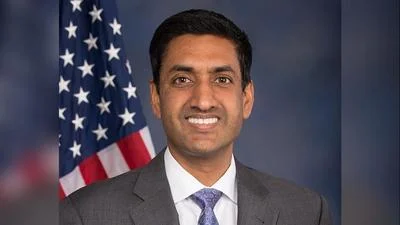John Taylor, Professor of Economics at Stanford University and developer of the "Taylor Rule" for setting interest rates | Stanford University
John Taylor, Professor of Economics at Stanford University and developer of the "Taylor Rule" for setting interest rates | Stanford University
John Kerry, the former U.S. climate diplomat, recently underscored the pivotal role of the private sector in significantly reducing global emissions of greenhouse gases. Speaking at a discussion hosted by Stanford University on May 8, Kerry stated, “Trillions of dollars have to be deployed, and it’s the private sector that has the ability.”
The discussion was part of Big Ideas in Sustainability, a series organized by the Stanford Doerr School of Sustainability. The event was moderated by venture capitalist and philanthropist John Doerr.
Kerry expressed his confidence that governments have laid the groundwork for swift progress through policies such as the Inflation Reduction Act of 2022 and an agreement by nearly 200 nations in 2023 to transition away from fossil fuels like oil, gas, and coal. He said, “I left doing the job I was doing because I believe very deeply government is not going to solve this [alone], because we need money.”
Drawing a parallel between current efforts to combat climate change and America's mobilization during World War II, Kerry noted that both public and private sectors need to act as if facing an existential threat. He called for larger tax incentives to drive investment up to more than $4 trillion per year - an amount estimated by the United Nations as necessary for climate finance by 2030.
He also urged for expedited permitting for wind and solar projects and "demand incentives," such as power purchasing agreements for renewable energy. Furthermore, he advocated commitments from major manufacturers to buy steel made without fossil fuels. He stressed that government must cease "subsidizing the problem," referring to federal tax breaks for the oil and gas industry.
Despite these challenges, Kerry remains optimistic about reversing course on climate change. Reflecting on historical signs of progress such as cures for deadly diseases and improved gender and racial equality, he said: “I believe change comes.”
When he assumed his role as climate envoy in 2021, the world was on a trajectory to warm as high as 3 or 4 degrees Celsius. However, the International Energy Agency estimates that warming could be limited to 1.7 C if nations fulfill their current pledges to reduce emissions.
Kerry called for a "Manhattan-type project" on small modular nuclear reactors, which could generate reliable electricity supplies at low cost with limited carbon emissions. He emphasized that transitioning away from fossil fuels would lead to a cleaner, healthier, and safer world.
Finally, Kerry encouraged young people to organize, demand change, and vote. He praised nonviolent protest and urged them to translate their fury into actions that bring about change.




 Alerts Sign-up
Alerts Sign-up